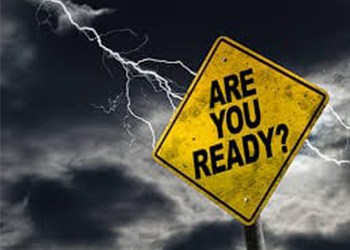Call Now To Uncover Your Personal Solutions
Call Now To Uncover Your Personal Solutions

While autumn is in the air and you can feel the seasons starting to change here in Massachusetts, parts of the country are still experiencing devastating flooding and the after effects of Hurricane Michael. Mexico Beach, Florida was nearly flattened by Michael’s fury. The death toll stands at 36 today, and 37 people perished in Hurricane Florence just last month. The Atlantic Hurricane season runs through November. So, just because autumn has arrived in the Bay State, that doesn’t mean we are out of the woods. Just six years ago, the second costliest hurricane in history, Hurricane Sandy, hit in late October. Winter snow storms and potential power outages are also just around the corner! It’s always good to be prepared; and seniors need to have a plan ready as much as, perhaps even more than, the rest of us.
Ideally, we all already have a plan in place for a potential natural disaster, but if you haven’t started yours, now’s the time.
The American Red Cross stresses the importance of “discussing and implementing a personal support network” and offers the following tips to that end:
1.) Make arrangements, prior to an emergency, for your support network to immediately check on you after a disaster and, if needed, offer assistance.
2.) Exchange important keys.
3.) Show them where you keep emergency supplies.
4.) Share copies of your relevant emergency documents, evacuation plans and emergency health information card.
5.) Agree on and practice methods for contacting each other in an emergency. Do not count on the telephones working.
6.) You and your personal support network should always notify each other when you are going out of town and when you will return.
7.) The relationship should be mutual. You have a lot to contribute! Learn about each other’s needs and how to help each other in an emergency.
The American Red Cross of Rochester has a detailed preparedness guide. You can download the 30 page booklet HERE, or keep reading for highlights. They’ve boiled it down to three steps for preparedness.
You’ll want to pack an emergency evacuation kit and have it all together in one place before you ever need it. You’ll need enough water and supplies for at least three days if you have to evacuate. This should be packed in an easy to carry backpack or duffel bag, maybe even something on wheels. Label your bag and any essential equipment with your name, address and telephone number. This should include canes, walkers, or any other assistive devices. You’ll want to make sure and have at least a seven day supply of any medications you may need
Form a team of caregivers, friends and family well before potential disaster strikes Choose someone from among them to check on you at the time of any potential disaster. Make a contact plan. Ideally have someone local and someone who is not to contact in the event of emergency. Often when a natural disaster strikes it may be easier to contact someone out of the area if local phone lines are down or jammed. Make sure these numbers are kept near your phone if you have a landline – or stored in your cellphone contacts.
Find out what plans are in place for your community at large. Can you get yourself to an area shelter if need be? Do any resources in the community offer transportation assistance if you cannot? Usually your area council on Aging can advise you in that regard, but there might be faith-based and other organizations that can help as well. You may need to plan to have a neighbor drive you. If you do end up needing to go to a shelter, be sure to inform them if you require any special assistance when you arrive.
Think about what natural disasters are likely to hit your neighborhood (earthquake, flood, hurricane), and assess your mobility, preparedness, and home. Do you have physical challenges that may impact your ability to remain at home or to evacuate safely? Work with your team to anticipate how to work around these challenges, and decide on a meeting place outside of your neighborhood in case it is not safe to return to your home. Be sure to review your plan every six month and replace any perishable items such as medications.
Most local television stations will operate on the Emergency Alert System (EAS). In advance of an emergency, keep your television tuned to those that do. Battery operated radios can keep you informed if you lose power. The National Oceanic and Atmospheric Administration (NOAA) also has its own special radios that can keep you informed during major storms. Check out www.noaa.org for more information.
While most natural disasters cannot be prevented, you can be prepared, and empower yourself to stay safe.

Our mission is to offer viable, winning solutions to our clients’ legal problems in an
efficient and caring manner. Whether simple or complex, your legal needs will be
addressed with skill and creativity, in a time-sensitive manner...Read More